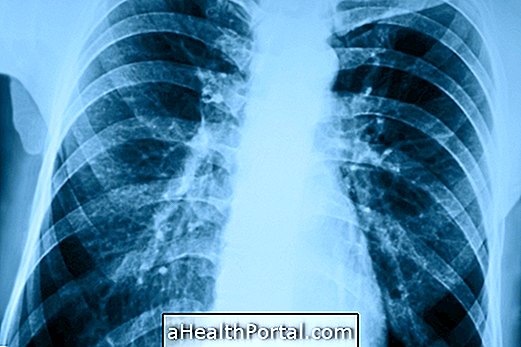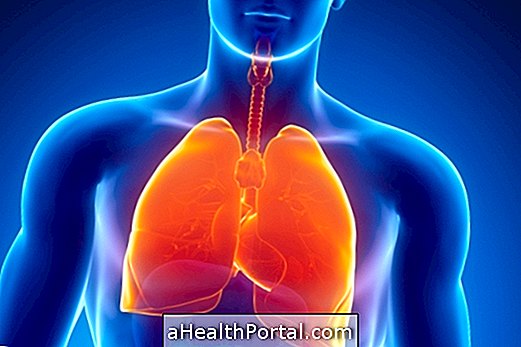Respiratory alkalosis is characterized by the lack of carbon dioxide in the blood, also known as CO2, causing it to become less acid than normal, with a pH above 7.45.
This lack of carbon dioxide can be caused by a number of factors, such as by breathing faster and deeper than normal, which can arise in periods of anxiety, stress, psychological changes, or also due to a disease that causes a breath such as infections, neurological disorders, pulmonary or cardiac diseases, for example.
Its treatment is mainly done through the normalization of breathing and for this, it is important that the doctor acts to resolve the cause that triggered the respiratory change.

Possible causes
Respiratory alkalosis is usually caused when there is deeper and faster breathing than normal, and this can occur in the following situations:
- Hyperventilation, in which the breathing is faster and deeper, and that normally occurs in situations of anxiety, stress or psychological disorders;
- High fever;
- Neurological diseases that cause dysregulation of the respiratory center;
- High altitudes, due to the decrease in atmospheric pressure, making the inspired air have less oxygen than at sea level;
- Salicylate poisoning;
- Some diseases of the heart, liver or lung;
- Breathing by misadjusted appliances, which is usually present in the ICU environment.
All of these causes, among others, can lead to a decrease in carbon dioxide in the blood, making it more alkaline.
Possible symptoms
Generally, the symptoms present in respiratory alkalosis are caused by the disease causing this change and also by the effects on the brain of hyperventilation, tingling of the lips and face, muscle spasms, nausea, tremors in the hands and being out of reality for a few moments . In more severe cases dizziness, breathing difficulties, confusion and coma may occur.
The main way to confirm respiratory alkalosis is through a blood test called arterial blood gas, where you can check the oxygen and carbon dioxide values in the blood as well as the pH. Generally, this test will observe a pH above 7.45 and CO2 values below 35 mmHg in arterial blood. Learn more about this exam.
How to treat respiratory alkalosis
Treatment depends on the cause of respiratory alkalosis. If the person has rapid breathing caused by anxiety, the treatment is based on lowering their respiratory rate, decreasing their anxiety and increasing the amount of inspired carbon dioxide. In cases of fever, this should be controlled with antipyretic medicines and in cases of poisoning should be made a detox.
However, in severe and difficult to control cases, such as in neurological diseases, sedation may be required to regulate the patient's respiratory centers. In addition, it may be necessary to adjust the parameters of the artificial respiration device when the person is in this condition.
If respiratory alkalosis is caused by high altitites, it is normal for the organism to compensate for this lack of oxygen by increasing heart rate, cardiac output, and respiratory rate.

























